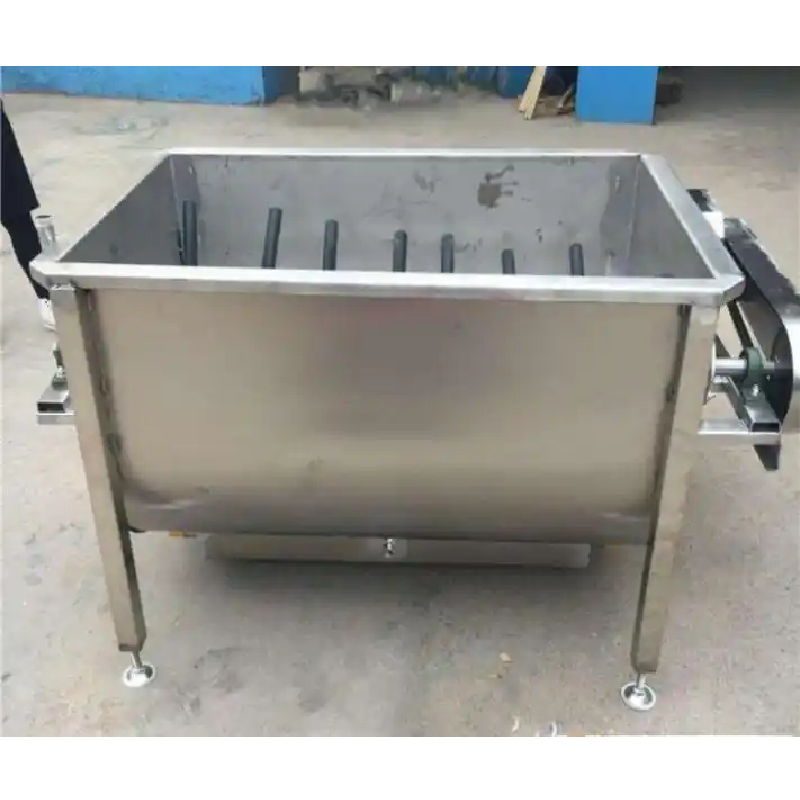small feed mixer
Oct . 06, 2024 18:22 Back to list
small feed mixer
The Importance of Small Feed Mixers in Modern Agriculture
In the ever-evolving landscape of agriculture, the precision and efficiency of livestock feeding have become paramount. For farmers who manage small to medium-sized operations, the solution often lies in innovative equipment that enhances productivity without requiring massive investments. One such essential tool is the small feed mixer, which plays a crucial role in the feeding regimen of various livestock, ensuring optimal performance and health.
Understanding Small Feed Mixers
A small feed mixer is a compact device designed to blend different types of feed ingredients into a uniform mixture. This equipment is especially beneficial for farmers who raise animals like cattle, goats, sheep, and poultry. The primary purpose of using a feed mixer is to achieve consistent feed quality, thus maximizing nutrient absorption and promoting better growth rates among livestock.
These mixers come in various sizes and designs to cater to the diverse needs of farmers. While larger farms may require more significant machinery capable of handling large quantities, small feed mixers are tailored for operations with more modest demands. They are easy to operate and maintain, making them ideal for farmers who may not have extensive experience with advanced agricultural technologies.
Benefits of Using a Small Feed Mixer
1. Improved Nutritional Balance One of the most critical advantages of using a small feed mixer is the ability to create a nutritionally balanced diet for livestock. By mixing different feed types—such as grains, vitamins, minerals, and roughage—farmers can ensure that their animals receive all necessary nutrients. A well-balanced diet leads to healthier animals, which in turn results in better productivity.
2. Consistency in Feed Quality Variability in feed quality can lead to inconsistent livestock performance. Small feed mixers eliminate this problem by producing homogenous blends, ensuring that every animal gets the same quality of feed. This consistency is crucial for maintaining growth rates and reproductive performance.
3. Feed Waste Reduction Feed wastage is a significant concern for farmers. When feed is poorly mixed, livestock may selectively consume their favorite ingredients, leaving behind crucial nutrients. A small feed mixer minimizes this wastage by promoting an even distribution of all ingredients, encouraging animals to consume the entire mixture.
4. Cost-Effectiveness Investing in a small feed mixer can lead to significant cost savings. By optimizing feed formulations and reducing waste, farmers can manage their feed expenses more effectively. Additionally, many small mixers are energy-efficient, minimizing operational costs.
small feed mixer

5. Flexibility in Feed Formulation Farmers often need to adjust their feed recipes based on seasonal availability of ingredients or specific nutritional needs of their livestock. Small feed mixers enable quick and easy adjustments to feed ratios, allowing for greater flexibility in production. This adaptability is vital for maintaining livestock health and maximizing feed efficiency.
Choosing the Right Small Feed Mixer
When selecting a small feed mixer, several factors should be considered
- Capacity Determine the appropriate capacity based on the size of the operation. A mixer that is too small will cause delays in feeding, while one that is excessively large may lead to unnecessarily high costs.
- Type of Mixer There are various types of small feed mixers, including vertical and horizontal mixers. Each has its advantages, and farmers should choose one that best meets their specific needs concerning the types of feed being mixed.
- Durability and Maintenance Robust construction is essential for any agricultural equipment. Opt for mixers made from high-quality materials to ensure longevity and ease of maintenance.
- Cost While it's tempting to go for the cheapest option, it's essential to consider the long-term investment value. A more costly but high-quality mixer may pay off in reduced operational costs and improved feed efficiency.
Conclusion
Small feed mixers are indispensable tools for modern agriculture, particularly for farmers who aim to optimize their livestock operations. By improving feed quality, reducing wastage, and offering flexibility in feed formulation, these mixers contribute significantly to the sustainability and productivity of farms. As agriculture continues to adapt and innovate, the role of small feed mixers in promoting efficient and health-focused livestock feeding practices will only grow more critical, ensuring the long-term success of small and medium-sized agricultural enterprises.
-
Hot Sale 24 & 18 Door Rabbit Cages - Premium Breeding Solutions
NewsJul.25,2025
-
Automatic Feeding Line System Pan Feeder Nipple Drinker - Anping County Yize Metal Products Co., Ltd.
NewsJul.21,2025
-
Automatic Feeding Line System Pan Feeder Nipple Drinker - Anping County Yize Metal Products Co., Ltd.
NewsJul.21,2025
-
Automatic Feeding Line System - Anping Yize | Precision & Nipple
NewsJul.21,2025
-
Automatic Feeding Line System - Anping Yize | Precision & Nipple
NewsJul.21,2025
-
Automatic Feeding Line System-Anping County Yize Metal Products Co., Ltd.|Efficient Feed Distribution&Customized Animal Farming Solutions
NewsJul.21,2025






